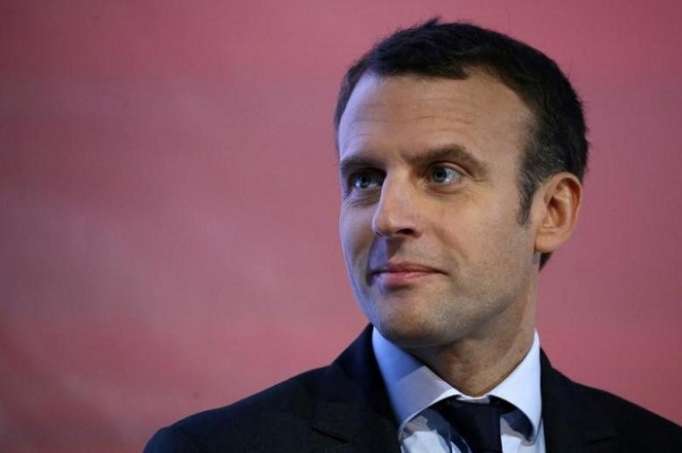While French President Emmanuel Macron shares the US desire to contain China, he refuses to view China’s systemic rivalry with the West in zero-sum terms. Cooperation with the US is essential, but so is more open-minded diplomacy in the Indo-Pacific, including toward China.
Russia’s full-scale invasion of Ukraine last year galvanized the West against not only the Kremlin, but also other rivals, especially an increasingly assertive China. But last month, French President Emmanuel Macron headed to Beijing, where he declared that, on sensitive matters like Taiwan, Europe should not simply follow America’s lead. The United States was not pleased, but nor should it have been surprised.
Like most French politicians – from Marine Le Pen on the far right to Jean-Luc Mélenchon on the far left – Macron is a Gaullist. Theirs is a shared sensibility, rather than a clearly defined ideology. Nor is it simply French anti-Americanism, as many believe. Instead, it is best described as a national sentiment, not unlike Peronism in Argentina, reflecting the “spiritual” legacy of General Charles de Gaulle.
That legacy is captured by Winston Churchill’s description of the general: when De Gaulle fled to London in June 1940, a few days after France fell to Nazi Germany, Churchill declared that he carried with him “the honor of France.” It is also exemplified by De Gaulle’s insistence – to the frustration of his Anglo-American benefactors – that France be treated as an equal ally.
The Fifth Republic, which De Gaulle established after World War II ended, was supposed to revitalize France’s sense of purpose. He expected that the renewed France – a self-reliant, sovereign nation-state – would be an influential member of the Western alliance, not a subordinate to the US. To lead this new France, he created a presidency so powerful that it may as well have been a monarchy.
It is in this tradition that Macron takes bold, unilateral, and sometimes controversial steps, both at home – for example, bypassing the National Assembly to implement an unpopular pension reform – and abroad. As De Gaulle probably would have, Macron has long urged Europe to stop outsourcing its security to the Americans and pursue “strategic autonomy” instead.
This drive was intensified during Donald Trump’s presidency, when Macron declared that NATO was experiencing “brain death” and warned that Europe could remain “in control of [its] own destiny” only if it started thinking of itself as a geopolitical power. But, even with Trump’s capriciousness exposing the risks of relying on the US, few Europeans were ready to take the leap toward strategic autonomy, though many paid lip service to the concept.
It took the Ukraine war to spur Europe finally to start investing in its own military capabilities. One might expect the US, which has long complained about European countries’ refusal to pay more for their own defense, to welcome this shift. But the expansion of European defense capabilities and Europe’s pursuit of strategic sovereignty has left the US apprehensive.
Macron has also challenged the US in other areas. Though he welcomed the election of Joe Biden, who pledged to repair the damage to transatlantic relations caused by Trump, Macron did not hesitate to criticize Biden’s Inflation Reduction Act, which includes massive subsidies for US companies, at the expense of their European counterparts. In his (not traditionally Gaullist) view, free trade is essential to buttress the democratic front against the authoritarian Russia-China axis.
Macron also took issue with Biden’s decision to establish the AUKUS security and technology alliance with Australia and the United Kingdom. Not only did the secretive negotiations exclude Europe; the deal caused Australia to scrap a lucrative submarine contract with France.
But Macron’s controversial comments on Taiwan are not merely retaliation against the US for disregarding France’s interests. The Indo-Pacific contains 93% of France’s exclusive economic zone, and is home to 1.5 million French citizens. This demands an independent policy toward the region.
Of course, France – like other European powers – still considers the transatlantic alliance vital to its interests. But, in the Gaullist tradition, it sees itself as an equal and a leader, not a subordinate. In 2021, France led a naval drill with the Quadrilateral Security Dialogue (Quad) countries: Australia, India, Japan, and the US. In March, it participated in the largest military exercise with Allied forces in decades. A few weeks later, the EU and the US conducted a joint naval exercise in the Indo-Pacific.
It is worth noting that Macron shares America’s desire to contain China. That is why France is upgrading its operational capabilities in the Indo-Pacific and increasing coordination with partners such as Japan and India. But Macron refuses to view China’s systemic rivalry with the West in zero-sum terms. Cooperation with the US is essential, but so is more open-minded diplomacy in the Indo-Pacific, including toward China.
One can think of worse approaches to the region. Considering America’s record of waging futile wars and oscillating between cooperation and isolationism, Macron’s variant of Gaullism may be the wisest option available.
Shlomo Ben-Ami, a former Israeli foreign minister, is Vice President of the Toledo International Center for Peace and the author of Prophets without Honor: The 2000 Camp David Summit and the End of the Two-State Solution (Oxford University Press, 2022).
More about:
















































